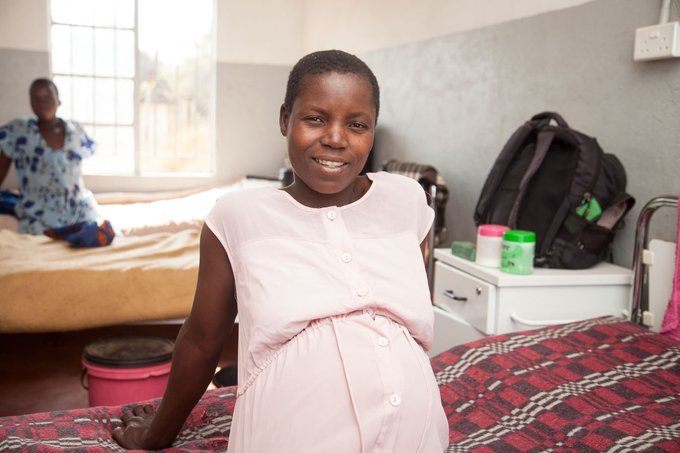In the midst of the COVID-19 global pandemic and on World Contraception Day, the UN’s reproductive health and rights agency – the United Nations Population Fund (UNFPA) and partners have called for greater efforts to ensure access to contraceptives for women and girls of reproductive age. This is towards “Zero unmet Need for Contraception” even during the emergency and humanitarian situations.
World Contraceptive Day is commemorated each year on 26 September. Launched in 2007, the day was set aside to help raise awareness on contraception to enable young people and women of reproductive age to make informed choices on their sexual and reproductive health. In Zimbabwe, UNFPA has been supporting the family planning programme since the early 1980s through a partnership with the Ministry of Health and Child Care, including its parastatal, Zimbabwe National Family Planning Council (ZNFPC)
“Zimbabwe joins the rest of the world in celebrating and commemorating the World Contraception Day,” said ZNFPC Executive Director Dr. Munyaradzi Murwira. “We call upon everyone and all the stakeholders to raise the awareness about contraception and to enable young people to make an informed choice on their sexual and reproductive health. We encourage all family planning and sexual and reproductive health partners and stakeholders to support the country in celebrating and commemorating the day”.
The country has done well to ensure access to contraceptives for women and girls. Today, Zimbabwe’s Contraceptive Prevalence Rate (CPR), that is the proportion of women aged 15-49 using family planning is 67%, an improvement from 59% in 2010. This is one of the highest on the continent. Despite this significant progress in the provision of Family Planning for women and girls, the raging COVID-19 pandemic is adversely impacting the accessibility and availability of the FP services.
Early this year, UNFPA supported the Ministry of Health and Child Care to conduct a Rapid Assessment of COVID-19 Response in the context of Maternal and Sexual and Reproductive Health in Zimbabwe. The assessment showed that the COVID-19 outbreak has affected women and young people’s access to sexual and reproductive health services, including access to family planning.
“There is no doubt that the COVID-19 pandemic has greatly affected women and girls access to contraception,” said UNFPA Country Representative Dr. Esther Muia. “We have reprogrammed our work to facilitate and ensure women and girls have access to contraception during the pandemic.
“One of the ways we have done this is entering into a partnership with our UN counterpart, World Food Programme (WFP) together with the Ministry of Health and Child Care, where we are distributing male and female condoms and sharing sexual reproductive health information at the WFP’s food distribution points throughout the country.
“This has been a great innovation that has brought sexual and reproductive health services closer to communities. To date, 1,8 million male condoms and 88,000 female condoms have been moved from Natpharm to WFP for onward distribution to communities.”
“WFP has a standing arrangement with the Government of Zimbabwe for distribution of food with over 1,500 food distribution points, covering 311,157 households in 60 districts, mainly over the lean season, before the next harvest.
“Food distribution points are deep in the communities and in close proximity and reach to the general population, making them easier and more convenient for communities to access essential and life-saving SRHR service,” said WFP Zimbabwe Representative and Country Director Francesca Erdelmann.
“It is in the spirit of delivering as one UN and maximizing on already existing platforms deep in the communities for the benefit and welfare of the general public.”
This partnership builds on the existing UNFPA, WFP Memorandum of Understanding (MOU) for the supply of food to Maternity Waiting Homes where pregnant women, mainly those at obstetric risk, are housed towards their delivery date at a health facility for close monitoring.
In addition to challenges related to the COVID-19 pandemic there remain challenges such as unmet needs among women and girls of reproductive age, especially in rural areas, where the majority of the population (68%) live. Unmet need for family planning among married couples is 10% in urban areas and 11% in rural areas while the unmet need for young people is 12.6% nationally. More efforts are required to address this unmet need.
Family Planning is a key pillar to ensure safe motherhood. Access to information and services enables women and men the voluntary ability to space births, benefiting the mothers’ and children’s health and the community as a whole. It also reduces the risk of death and disability associated with unintended pregnancy and consequent childbirth.
“Women who have fewer risky births, healthier pregnancies and safer deliveries have lower risks of death and have improved overall health. These improvements produce economic benefits: greater investments in schooling, greater productivity, greater labour force participation and, eventually, increased income, savings, investment and asset accumulation,” said Dr. Muia.
UNFPA’s family planning programming, which provides all-round support to the national FP programme, including the procurement of the contraceptives for the country, is being implemented under UNFPA’s flagship programme, the ‘UNFPA Supplies’ and the ‘Health Development Fund’ which receives financial support from the Governments of Britain, Ireland, Sweden and the European Union.






